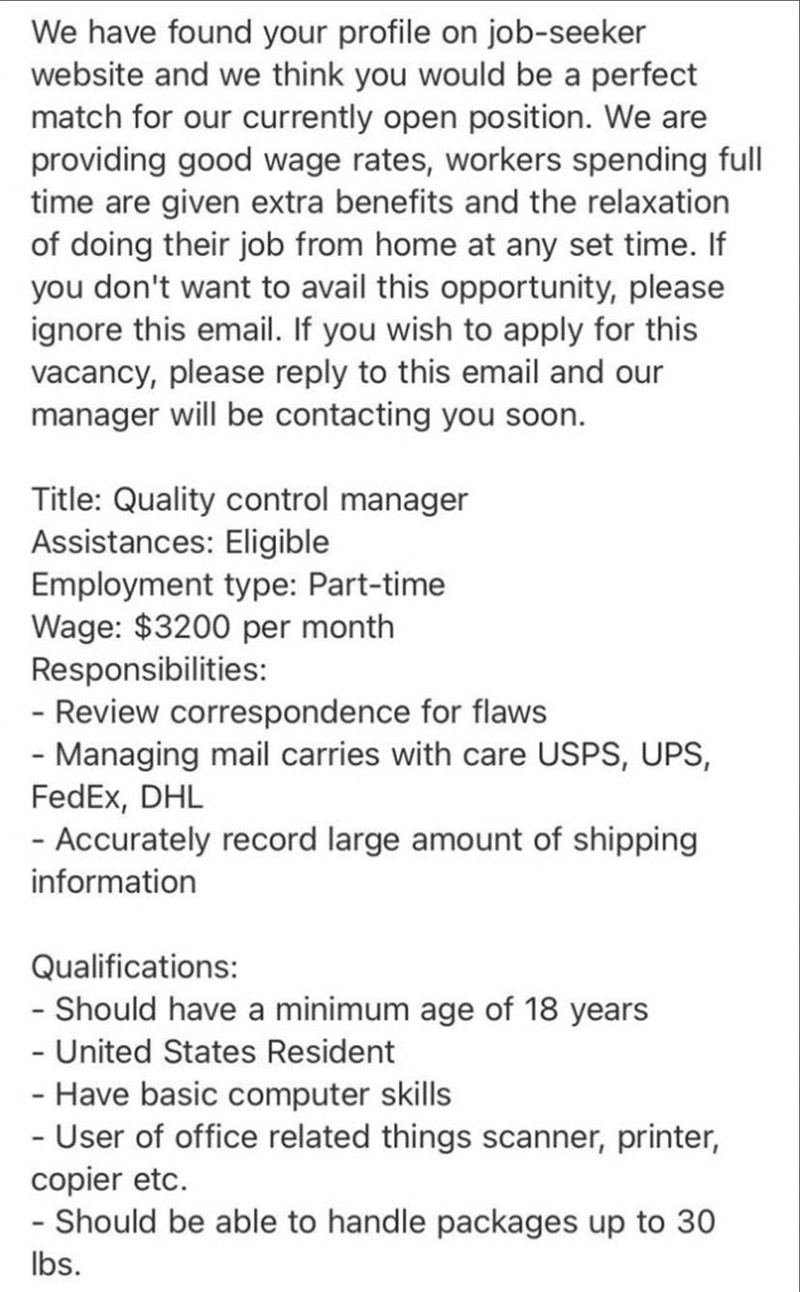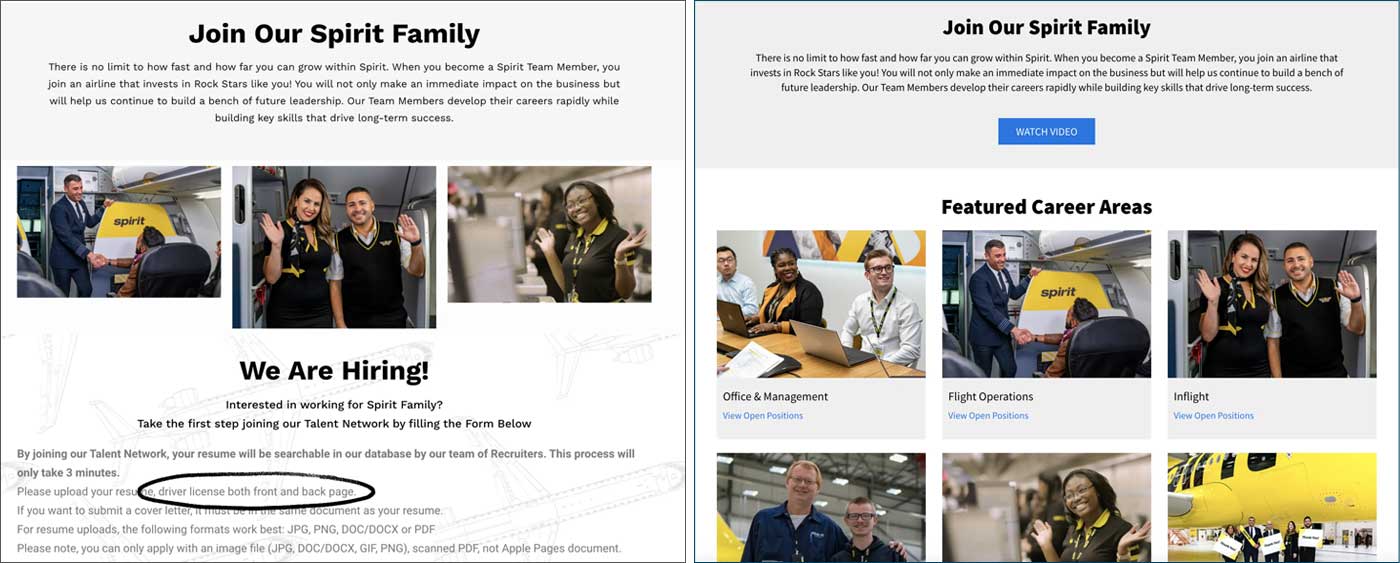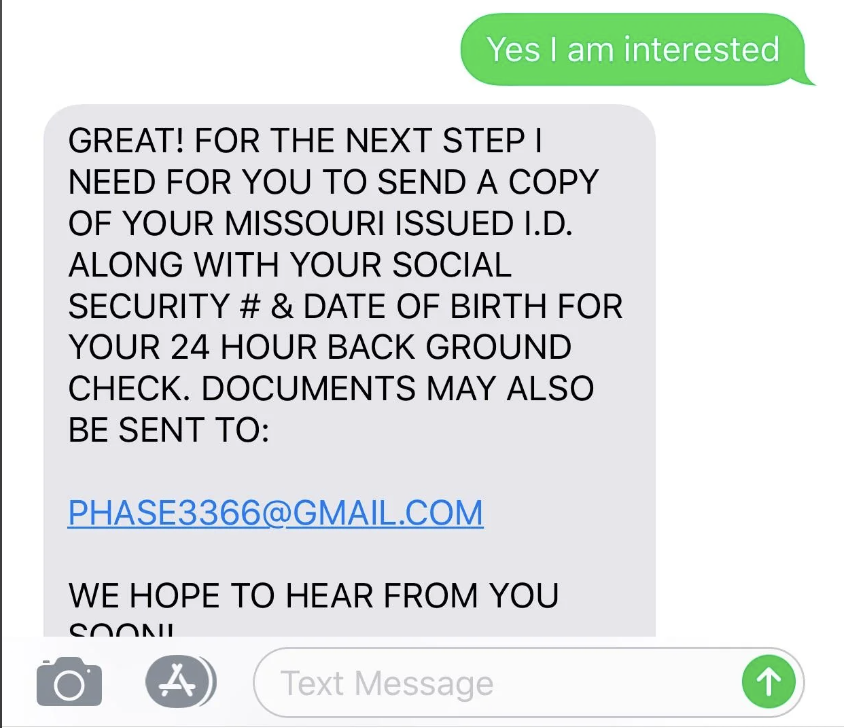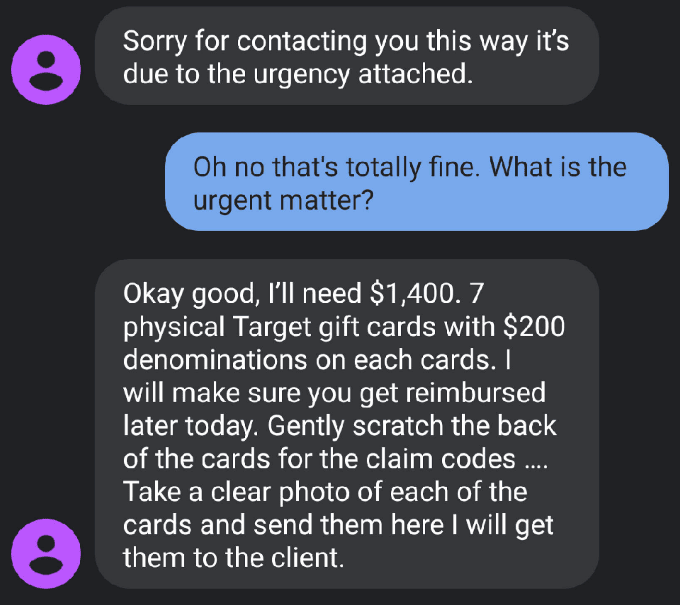
Work from home? Not so fast: Scammers target job seekers with fake online job offers
August 30, 2023
By Keri Struve • Vice President of Human Resources
You might’ve heard it’s a “tight labor market” right now. Unfortunately, this also means means it’s a job scammer’s market.
The Federal Trade Commission (FTC) has alerted that scammers are lurking on job posting websites like LinkedIn, Indeed, CareerBuilder, Yelp Careers and more. They pose as “recruiters” for well-known companies, targeting people who are looking for new jobs, or hoping to work from home. And, they'll use a variety of tactics to trick victims into giving up their personal information or money.
How does an online job scam work?
Here's how an online employment scam typically works:
The scammer may create a “too-good-to-be-true” fake job posting on LinkedIn or Indeed. Or, they may be even more proactive and send you a direct message. They may say something like, “I saw your profile and I think you'd be a great fit for a position at our company.”

A "too-good-to-be-true" job offer. Posts like this are often placed on Facebook, LinkedIn or other job offer sites. Source: TrendMicro
If you respond, or request more information, the scammer will ask you for an interview over email, chat or text. The email may even come from an address that looks like it belongs to the company they're claiming to represent. Sometimes, they'll send you a link to a fake website that asks you to “apply” and upload personal information.

Left: A fake careers website posing as Spirit Airlines asks applicants to upload a driver's license to apply for a job. Right: The real Spirit careers site, which makes no such request. Source: ProPublica
After the interview, the scammer will send you an offer letter or fake job offer email or text message. The letter could look very official, and it may even include the company's logo. However, it's important to remember that scammers can easily create fake offer letters.

Will a legitimate company ask you to email personal information up front, through a text message? Unlikely. Keep your data to yourself. Source: Reddit
Once the scammer has offered you the job, they'll start asking for your personal information or money. They may say something like, “We need you to pay for your own equipment before you start working.” Or, they may ask for your bank account information so they can “deposit your first paycheck.”

Would a legit company ask you to pay money up front, or buy gift cards, as part of a job? No, it's a scam. Source: NY Attorney General
How to avoid an online job scam:
It's important to be wary of any requests for personal information or money from someone you don't know. Legitimate employers will never ask you to pay for anything upfront, and they will never ask you to send them your personal information over email.
Here are some additional tips to help you avoid job scams:
- Never give out your personal information over email. This includes your Social Security number, driver's license number, or bank account number.
- Be wary of any requests for money. Legitimate employers will never ask you to pay for anything upfront.
- Did you get money? Don't bank on it. No honest potential employer will send you a check to deposit, then tell you to send part of the money back, or buy gift cards with it. The check will bounce, and you could be on the hook to pay back the money you forwarded! (This is called a fake check scam).
- Do your research. Before you accept a job offer, take some time to research the company and the person who is offering you the job. Check out the company's website and social media pages. If you can't find any information about the company, or the person who claims to be from the company, it's probably a scam.
- Contact the company directly. If you're still not sure whether the job offer is legitimate, contact the company directly using a phone number or email address you find on their official website. Don't rely on the contact information the scammer gave you.
- Trust your gut. If something seems too good to be true, it probably is. If you have any doubts about a job offer, it's best to walk away.
Have you been targeted by a job scam?
If you think you may have been contacted by a scammer on a job website, report it to the official website and to the authorities. You can also report the scam to the FTC at ReportFraud.ftc.gov.
If you are interested in a real career ...
We are always looking for talented individuals at Security National Bank. If you're interested in helping people, making a difference and working somewhere you matter, we'd love to have you on our team at SNB. Look at our employment opportunities page to learn more.